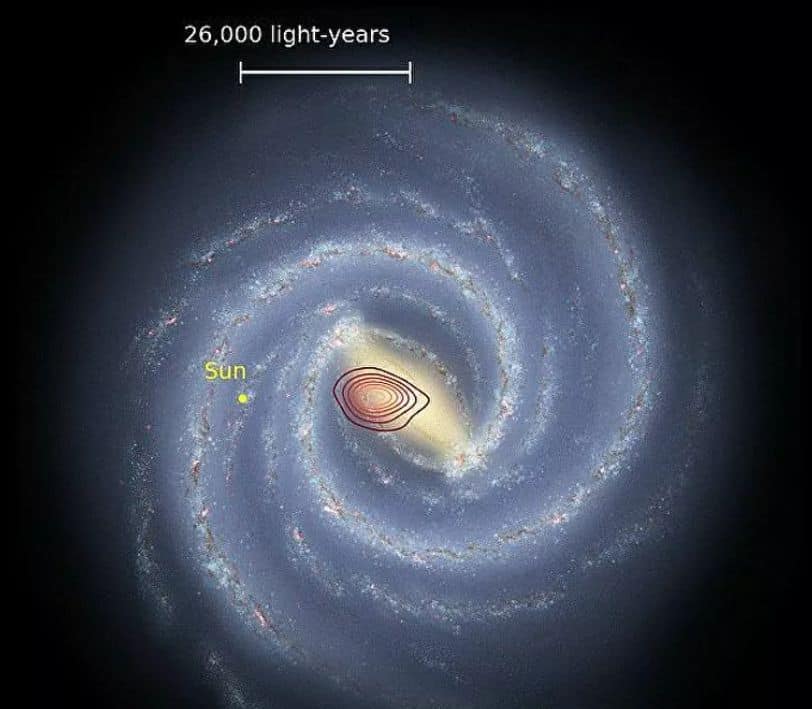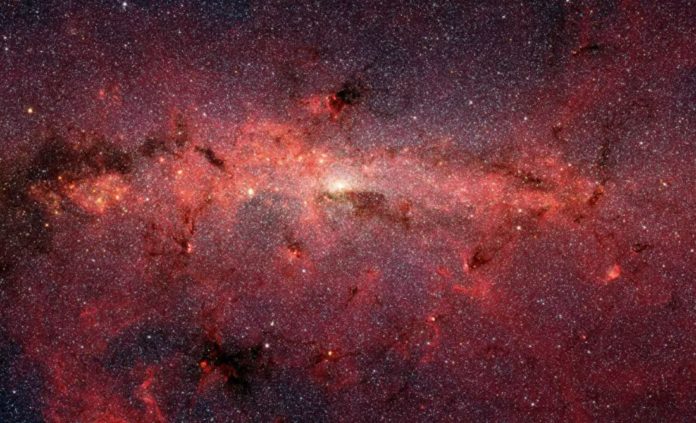The ancient galaxy was named Heracles and is believed to be a remnant of the early universe.
Experts from Liverpool have discovered a “fossil galaxy” hidden deep in the Milky Way. It was found from the observation of movements and analysis of the composition of tens of thousands of stars. The study was published in The Monthly Notices Of The Royal Astronomical Society.
The cosmic relic, nicknamed Heracles in honor of the hero of Greek mythology, is responsible for a third of the spherical halo (region of space around the spiral galaxies) of the Milky Way, made up of stars and gas. Remains of several ancient galaxies have already been seen in the outer halo of our galaxy. In fact, it is through mergers of galaxies that significant galaxies are formed.
However, to find such ancient fusions, like this one, buried in the bottom of the disk and the bowl, it is necessary to analyze the central part of the Milky Way’s halo.

The red rings represent the location of the fossil galaxy.
“to “catch sight” of that galaxy is awesome. It is really small in the cosmological context — only 100 million stars — but accounts for almost half the mass of the entire Milky Way halo”
says article author and astrophysicist Ricardo Schiavon of Liverpool John Moores University.
In the study, Dr Schiavon and his colleagues analyzed the data collected by the Apache Point Observatory Galactic Evolution Experiment (APOGEE), which has already collected data from more than half a million stars in the Milky Way.
“To find a fossil galaxy like this one, we had to look at the detailed chemical make-up and motions of tens of thousands of stars. That is especially hard to do for stars in the centre of the Milky Way, because they are hidden from view by clouds of interstellar dust”
explained the expert.
“Of the tens of thousands of stars we looked at, a few hundred had strikingly different chemical compositions and velocities. These stars are so different that they could only have come from another galaxy”
said his colleague Danny Horta, also from the University of Liverpool.
Based on their findings, the team concluded that the collision between Heracles and the Milky Way must have been the biggest event in the history of our galaxy, which, they add, makes the Milky Way unusual among its peers, a time that the most similar massive spiral galaxies have had much calmer early lives.
“As our cosmic home, the Milky Way is already special to us, but this ancient galaxy buried within makes it even more special”
pointed out Dr Schiavon.
